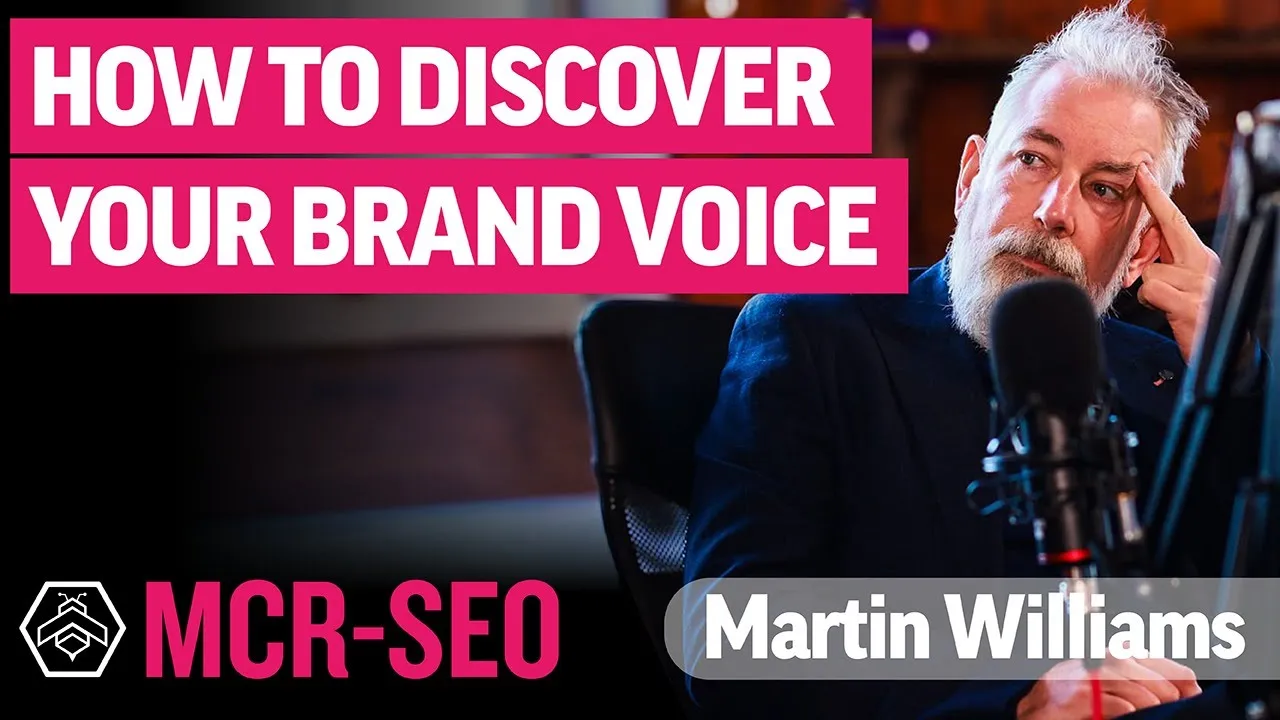Nathan Locke and Martin Williams - Episode 1 - MCR SEO Podcast
In the pilot episode of the MCR SEO podcast, we have two
guests for the price of one!
James is joined by Nathan Locke, MCR SEO’s very own head
copywriter, and the marvellous Martin Williams, copywriter and founding partner
of Hampson Nattan Williams.
Copywriting Success Stories
Two copywriters at very different stages of their career
share their insight into copywriting, AI, and how the industry is changing.
Nathan is a relative newbie, but one with the creative
writing background and SEO knowledge needed to succeed sooner than many of his
Gen Z peers.
Martin has been writing for much longer, but only joined the
copywriting scene in 2009, when a friend’s agency needed some talented backup
to produce content. He describes himself as an ‘accidental’ copywriter as a
result but hasn’t look back since.
Now his company https://ukcopywriting.com/
is providing superb copy and content strategies for a wide range of clients.
As for Nathan, well you don’t have to go far on this site to
find his work!
Copywriting Then and Now – How has it Changed?
Introductions complete, the trio dove into a discussion
about how copywriting has changed over the years.
Agencies used to be king, in the ‘David Ogilvy’ era where
advertising and marketing were handled by firms of copywriters focused on
physical media. But since the dawn of the internet, freelancers have become the
go-to, all offering their own creative spin on digital content.
Martin explains how, despite it being a more popular career
than ever, copywriting is still often overlooked as the valuable marketing tool
it can be, and how too many companies look for cheap and cheerful content
instead of quality copy.
Using the ‘right’ words is more important than ever -
something the boys from MCR SEO know all too well – and ‘crap copy’ is the real
enemy of any budding or experienced copywriter.
Finding a Brand’s Voice
The content pros talk about how challenging it can be to
write in the ‘voice’ of a client. When optimising their content, and creating
new pages/blogs, matching their style is crucial so the tone is universal
throughout.
The delicate balance between optimising content for SEO
without losing that all-important tone is something Martin and Nathan
understand well, and both have years of experience helping companies to
capitalise on the right tone for their business.
Martin’s ‘message-first’ approach is something he puts a lot
of emphasis on. By establishing the primary aim of the client, it’s much easier
to build quality content without ever losing sight of their business goals.
AI Copywriting
AI’s impact on the copywriting industry can’t be understated,
but many people are still unclear on what that impact has been.
Martin explains how, even though AI is unable to replicate
the experience that makes a copywriter’s skillset so important, it has brought
a lot of attention to what separates ‘crap copy’ from what businesses need to
boost their SEO.
Unlike AI images, which have only become more sophisticated,
and can fool people at a glance, content is far more nuanced.
Nathan believes that AI content generation will never truly
match what a human can produce, whereas Martin sees it as a genuine threat to
the copywriting industry further down the road.
One think both copywriters agree on is that ChatGPT, Bard,
and other AI models absolutely have their uses, and can be an invaluable tool
for copywriters.
A change James and Nathan have seen is that AI is pushing
copywriters to write better content than ever, focusing on the human tone that
was always better to read, but now has genuine SEO benefits too.
Speed or Skill – AI Vs Human
Nathan talks about how, at an online networking event, he challenged
himself to write a better story than what ChatGPT could create. The prompt was
a funny story about cucumbers – a running joke within the networking group.
The AI model did produce a passable piece of content, that
members of the group said was decent. But in 15 minutes, Nathan not only
created something better from a writing standard, but with a much better
understanding of what the other networkers would enjoy – leading to a more appropriate
tone and funnier jokes.
The point of the exercise was to show to his fellow
creatives that, although AI is fast, a copywriter can create something much better
with only a little more time to work with. 15 minutes in the long run is
nothing, and the results spoke for themselves.
The Future of Copywriting
Looking forward, the future of copywriting is a promising
one. Even if AI does improve, and one day can be an alternative to a human
writer, the knowledge and experience a copywriter provides for their clients
will always be incredibly valuable.
Finding a client’s voice, creating a content plan, researching
the topic, finding keywords – a copywriter can do so much to support a business
before they begin writing.
The importance of ‘humanity’ in content will ensure that
Nathan and Martin’s services will be in high demand no matter what the future
holds.
As long as there are humans with something to say, the
writer will never be far away.




